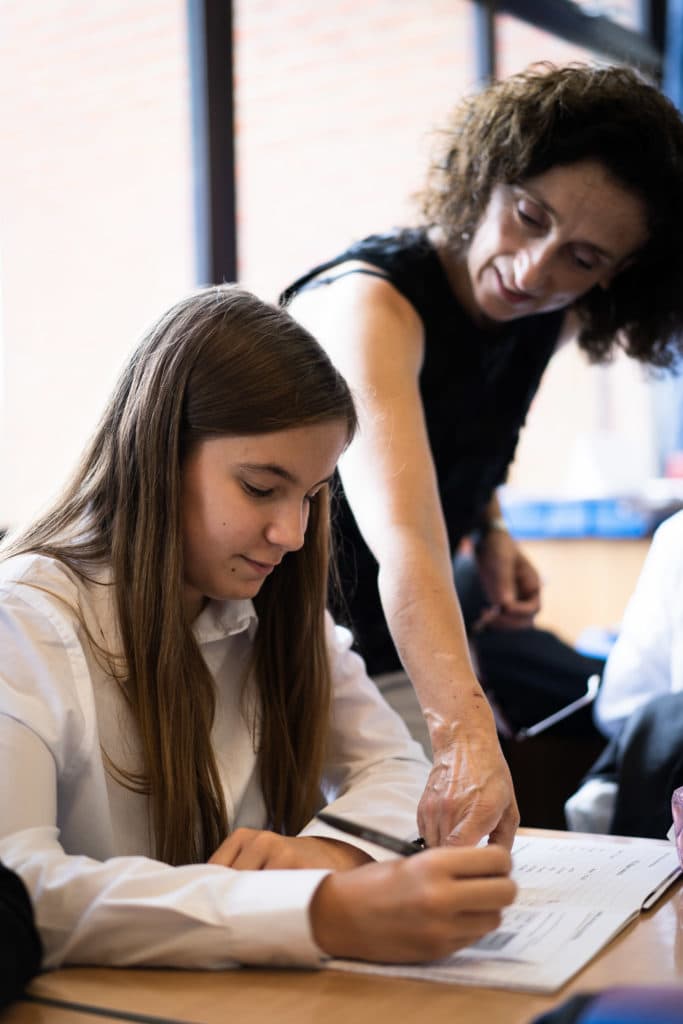
Learn the language that is quite likely to be as widely spoken and used throughout the world as English.
Spanish is spoken by around 400 million people and is fast becoming one of the most spoken languages in the world. Experts predict that during the next century Spanish will overtake English as the most widely used language in the USA. Spain remains the UK’s favourite holiday destination. What other modern foreign language could be more useful to young people equipping themselves for their future?
Through the study of Spanish our pupils gain an insight into another culture and develop an appreciation of cultural variety. They develop the confidence to express their ideas, in a wider variety of social situations, as they gather vocabulary and master grammatical structures. Pupils have access to some of the highlights of Spanish-speaking culture such as Latino American cinema or the magic realism of Latino American literature. They learn communication and analytical skills that are required or highly desirable across a broad spectrum of career paths.
Lower School
“Spanish Day was a huge success – action-packed great fun!” Year 7 pupil
Spanish is a phonetic language making spelling and pronunciation easy to learn. In Year 7 pupils study the topics of Family, School, Free Time and the Local Area and learn the concepts of gender, word order, using the present tense, expressing simple opinions and talking about the future. At the Year 7 Spanish Day pupils are involved in salsa and merengue workshops and activities that include tapas tasting. In Year 8 pupils learn the past tense and use the topics of Food, Holidays, Health and Clothes in order to develop greater complexity of expression through the use of connectives and new structures.
“The dancing in the morning was certainly different to anything I have ever done but so much fun!” Year 7 boy
Middle School
In Year 9 pupils continue to build up core knowledge with the imperfect, future and conditional tenses. They study various topics in order to broaden their vocabulary and assessment begins preparing pupils for the demands of GCSE. From Year 10 they are expected to speak and write at length on topics both familiar and new to them. We work hard to boost their confidence and oral fluency. In Year 9 or 10 pupils are given the opportunity to travel to the Cantabria region of Spain; this trip allows pupils to attend language lessons and practise their skills as well as to experience the culture and Spanish way of life first hand through trips to the Picos de Europa and Guggenheim museum.
“The short time you spent there really brought the language and the culture alive for our daughter.” Parent
Sixth Form
The A Level course covers a range of social issues and cultural topics which all relate to life in Spain and Spanish-speaking countries. It builds on the topics of GCSE, but introduces new language so that you develop a thorough insight into aspects of Spanish culture.
You will study a Spanish film in depth, and in the second year of the course, a work of Spanish literature. More contemporary issues such as modern Spanish music, the changing nature of the family and the multicultural society, are also core elements of study. Students develop their ability to express themselves fluently in the spoken language, carrying out an independent research project into an aspect of Spanish culture or society that is of particular interest to them, and then discussing it in depth in the oral exam.
Alongside the skill to translate accurately from and into Spanish, students will extend their ability to write evidence-based, persuasive essays in the target language, essential preparation for university study.
In Year 12, the following topics are studied:
Within the context of SPAIN:
• Changing family structures
• The world of work
• The impact of tourism
Within the context of SPAIN and Latin American countries:
• Media
• Festivals and Traditions
• Music
• A Spanish film: Pan’s Labyrinth by Guillermo del Toro
In Year 13, the following topics are studied:
• Immigration, integration and multiculturalism
• Civil War
• Franco’s dictatorship and the transition to democracy
• A work of Spanish Literature: Chronicle of a Death Foretold, by Gabriel Marquez
• Independent Research topic
At the end of Year 13, Spanish A Level has three exams: a Comprehension paper with Listening and Reading tasks 40%; a Writing paper, comprising two essays and a translation 30%; and an Oral exam 30%. We have a long record of success at Spanish A Level, sending students on to study Spanish at university every year.
Exam results
The average of the results in Spanish over the most recent three year period (2023, 2022, 2021) is:
| GCSE | |
| 9 | 25% |
| 9 – 8 | 55% |
| 9 – 7 | 67% |
| 9 – 4 | 100% |
| A Level | |
| A* | 16% |
| A* – A | 60% |
| A* – B | 96% |

